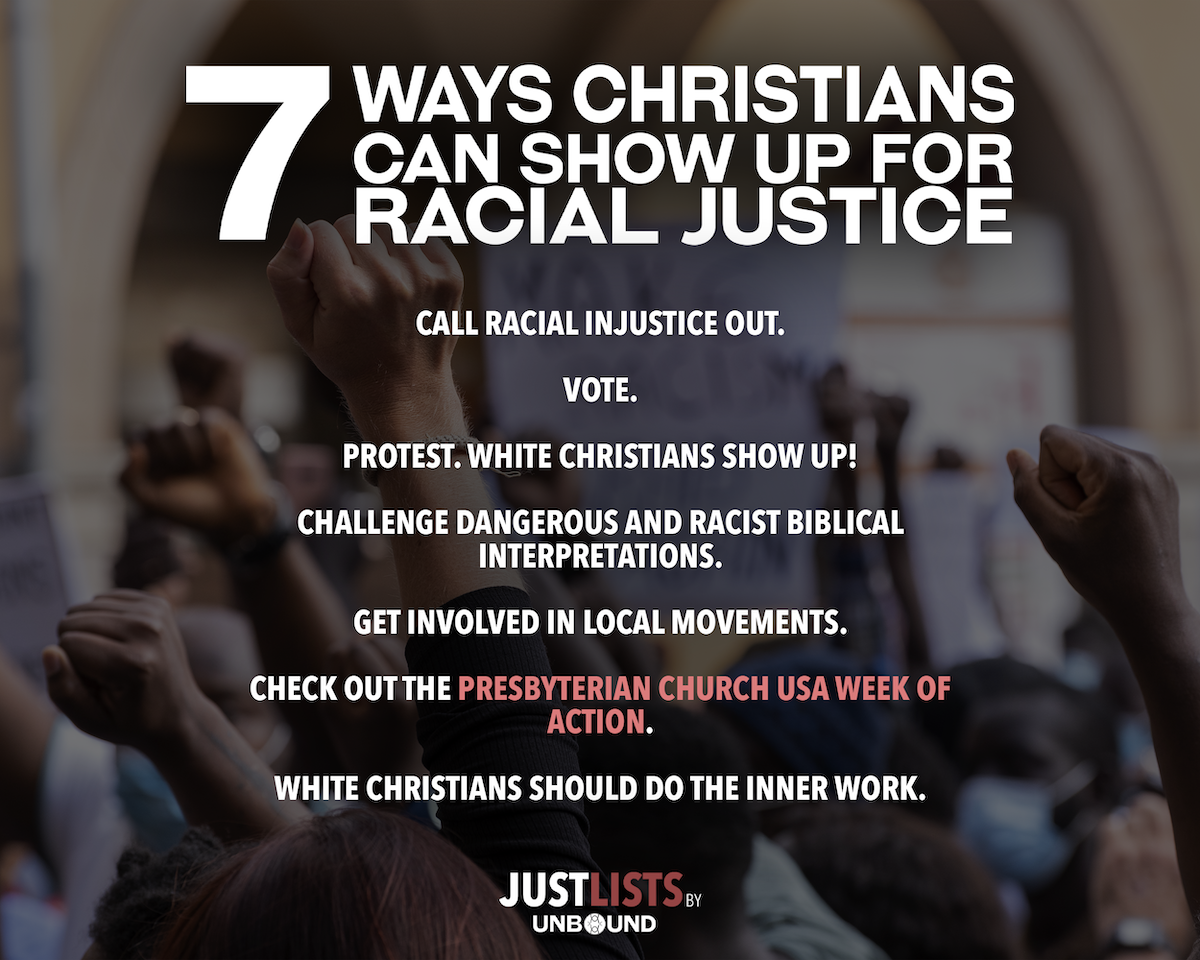The United States is currently battling a deadly virus, struggling with a seriously impaired economy and trying to reconcile centuries of injustice towards people of color. In the small county where I live, over 2300 people have contracted the virus and several have died, many are unemployed and struggling with their financial affairs, and others are buying guns to prepare for what they perceive to be a race war. Trying to understand this and knowing how to respond is a daunting task, especially for people of faith.
I am a Christian. I am also a sociologist. My understanding of the world around me comes from both of these important parts of my existence. It is often said of Christians that we live in this world, but we are not of this world. However, how we live in this world is often shaped by those otherworldly beliefs that emerge in the church in our early years and are reinforced as adults. Sometimes those beliefs, as important as they are, limit our ability to accurately understand the complexities of the world around us.
Almost 30 years ago, in his book Culture Wars: The Struggle to Define America,[1] sociologist James Davison Hunter observed a growing divide in the United States between the religiously orthodox and their progressive counterparts. He argued that the historic conflicts between Protestants, Catholics, and Jews were being replaced by new alignments that brought orthodox believers together from all three religions as well as progressive believers together from those same religions.
This division was revisited in late 2019 when Attorney General of the United States William P. Barr delivered a speech to the Law School and the de Nicola Center for Ethics and Culture at the University of Notre Dame. The speech, mostly about religious liberty, gained some media attention, primarily by critics who saw it as a misreading of the First Amendment. Little, if any, media coverage was given to another part of his speech – an attempt to differentiate Christianity from secular society and ultimately from what he calls “secular religion.”
Christianity, he argues, teaches a “micro-morality,” where Christians transform the world by focusing on their individual morals and transformation. The new secular religion, he argues, teaches a “macro-morality,” where one’s morality is not gauged by private conduct, but rather by “collective action to address social problems.”[2] Barr’s most significant characterization of secular religion was its dependence on the government to alleviate the problems of society. He draws a portrait of a country divided into camps of secularists on the one side and people of faith on the other.
Many saw this as a political speech. I would argue that, at least in part, it was a sincere oration of his Christian beliefs. While there was much in his talk to disagree with, some of his perceptions of the problems of American society are fairly accurate and supported by research, like weaker community bonds and growing isolation. However, it might be argued that his assumed connection between these and other social problems with declining religion as the causal factor does not hold up to scientific research. Diminishing religiosity, as Matt Ford argues, is a less persuasive reason for these social ills than economic inequality and other policy choices.[3]
Barr’s personal Christian views are those of a devoted conservative Catholic who believes the nation needs a “moral renaissance” to restore Judeo-Christian values in American life.[4] His argument is a common theme in the history of Christianity, but not the only theme, and perhaps not the most important one. Rev. Mae Elise Cannon points out that during the two Great Awakenings of the 18th and 19th centuries Christians extended beyond personal renewal in salvation and a high standard of individual morality to a concern for social justice, especially in response to the poor.[5] In the wake of the Second Great Awakening early in the 19th century, evangelicals charged into the enterprise of social reform, “including common schools, peace crusades, the abolition of slavery, temperance, prison reform, and women’s rights.”[6] There has often been a macro-morality as well as a micro-morality religion. Even Jesus was just as concerned about the injustices of the religious, political and economic institutions of his time as about the personal transformation of the people he met.
There is an emerging movement among many Christians today that challenges some of the basic assumptions that Barr and many traditional Christians have long held to. As Catholic theologian Richard Rohr points out, many “emerging” Christians are more concerned about Jesus as a model for living than an object of worship; they believe that inviting questions is more valuable than supplying answers; they argue that affirming people’s potential is more important than reminding them of their brokenness, and they believe the work of reconciliation should be valued over making judgments.[7] Many of these Christians want to see more involvement with the secular world, not less, by following the life of Jesus.
What it means to “be a Christian” and to “follow Jesus” today, however, is a different challenge than 2,000 years ago. Marcus Borg argues that to fully grasp the meaning of Jesus’s life, we must understand the context in which he lived, especially the context of early Christianity, Judaism, and the Roman Empire.[8] The life of Jesus in the New Testament still provides the fundamental principles for Christians today, but the implementation of his mission has to be understood in the context in which we currently operate – a modern social and cultural environment that is fundamentally different from the time of Jesus. So, what does it mean to love our neighbor in the 21st century and how can we do it better?
Toward a More Socially and Culturally Informed Faith
In Western cultures, we have supported a very personal, individualistic view of ourselves and the world around us through our religious, economic, educational and political systems and through various folk stories in our culture, such as the concept of “rugged individualism” or “picking one’s self up by their bootstraps,” or Horatio Alger type stories of success from the bottom up. This approach to life appeals to many people, especially those who seem to have come out on the higher end of the various indicators of what might be called the “quality of life.” After all, most of us like to think that what we have accomplished in life is due primarily to our personal efforts. This applies to every aspect of our lives, including our faith.
There is a different way of understanding why we do what we do, believe what we do, and even think the way we do. It is called the “sociological imagination.” The American sociologist C. Wright Mills introduced this concept in 1959. In what he describes as both its task and promise, the sociological imagination enables us to grasp the relationship between the historical period in which we live – our biography – and the broader society of which we are a part.[9]
Mills makes a distinction between “personal troubles” and “public issues.” Troubles are those things that occur within the character of the individual and those limited areas of social life of which she or he is personally aware. The resolution of these issues is a private matter, generally handled by the individual.[10] We tend to interpret most of the problems we face in life as “personal troubles,” but Mills argues we often need to see them as “public issues.” An issue has to be understood in the context of the institutions of a historical society as a whole and how these influence our personal lives.
To give an example of this, take the highest 2020 unemployment rate in the United States of 14.7%, a function of the coronavirus crisis and the economic decline the nation was experiencing. Just a few months before it was 3.6%. Around 10 years before, at the height of the Great Recession, the unemployment rate was about 10%. In 1933, during the Great Depression, the unemployment rate was 24.9%.[11] While it is tempting to see the unemployed person at any point in history as experiencing a personal trouble – lacking motivation, desire, education, skills, or some other individual malady – these four statistics would suggest that the more appropriate explanation would look at unemployment as a public issue – that something systemically is going on. Understanding the problem and the range of possible solutions require us to consider the major structures of society, and not merely the personal situation or character of the individual.[12]
Christianity and the Sociological Imagination
This may be especially important in understanding the different challenges that Christians face in the 21st century, especially how to apply the fundamental principles of the Bible and our faith. Marcus Borg argues that the documents of the New Testament, for example, were not written to us or for us today, “but to and for the ancient communities that produced them.”[13] As we read the New Testament today, he argues that we live in a particular time and place and this affects what we think about the Bible and how we respond and act. Therefore, it is important to understand not only the historical context of the Bible but also the contemporary culture in which we live.
One of the difficulties of applying a sociological perspective to faith is its support for some level of determinism in our lives, which is not well received in a hyper-individualistic culture like the United States today. Employing a sociological imagination requires, at least in part, a willingness to let go of our culturally received notions of human nature in general and personal agency in particular. Many faithful people find this threatening as it undermines a simple notion of individual agency–upon which the entire edifice of personal salvation appears to be premised.[14]
As Christians, I believe that we can be both free and determined, and awareness of how the social milieu shapes our individual and collective social character is the first step to liberating ourselves. Accepting a sociological approach does not mean that your life is completely controlled by these social forces around us. By denying their impact, however, or not understanding how they affect us, we position ourselves to be continually constrained by them. Richard Rohr points out that healthy spirituality also leads us to true freedom, primarily because it removes us from our cultural biases and the impact of those institutions that focus us on consumerism, power, and control. Instead of centering on personal freedoms enjoyed by individual people, he directs our attention to a systemic level of freedom.[15]
Using the sociological imagination in the context of faith is an alternative to the personal transformation emphasized in traditional approaches to Christianity. As Christians, we do believe that this individual transformation, whether it comes in the form of a very personal emotional one-time event or a long process of intellectual and spiritual commitment and study to follow the words of Jesus, is important. Too often, however, the immediate conversion of being saved does not last unless there is a community of believers and followers that reinforce a way of life that truly comprehends what it means to be a Christian in today’s society, both in faith and action. Incorporating the sociological imagination can be a critical piece to this process.
[1] James Davison Hunter, Culture Wars: The Struggle to Define America. (New York: Basic Books, 1992).
[2] William P. Barr. Remarks to the Law School and the de Nicola Center for Ethics and Culture at the University of Notre Dame, South Bend, IN, October 11, 2019. Accessed at https://www.justice.gov/opa/speech/attorney-general-william-p-barr-delivers-remarks-law-school-and-de-nicola-center-ethics 11/11/2019.
[3] Matt Ford, “Bill Barr’s First Epistle to the Heathens.” The New Republic, October 22, (2019). https://newrepublic.com/article/155463/bill-barrs-first-epistle-heathens. Accessed 04/20/2020.
[4] Jeremy W. Peters and Katie Benner, “Barr Dives Into the Culture Wars, and Social Conservatives Rejoice.” New York Times, Dec. 8. (2019). https://www.nytimes.com/2019/12/08/us/politics/william-barr-conservatives.html?nl=todaysheadlines&emc=edit_th_191209?campaign_id=2&instance_id=14318&segment_id=19426&user_id=bb482f78c2252d27ce5edec89cb138d2®i_id=542112181209. Accessed 04/20/2020.
[5] Mae Elise Cannon. Social Justice Handbook: Small Steps for a Better World. (Downers Grove, Illinois, Intervarsity Press, 2009).
[6] Randall Balmer, “Conspiracy Theories, Apocalyptic Rhetoric, and the Evangelical Embrace of Premillennialism.” Sojourners, April 17, 2020. https://sojo.net/articles/how-did-we-get-here/conspiracy-theories-apocalyptic-rhetoric-and-evangelical-embrace. Accessed 04/20/2020.
[7] Richard Rohr. “Church: Old and New,” Week Forty-four of Richard Rohr’s Daily Meditation from the Center for Action and Contemplation. https://cac.org/themes/church-old-and-new/. Accessed 06/24/2020.
[8] Marcus Borg. Evolution of the Word: The New Testament in the Order the Books Were Written. (New York, Harper Collins, 1989).
[9] C. Wright Mills. The Sociological Imagination. (New York, Grove Press, Inc., 1959). P. 6.
[10] Ibid. p. 8.
[11] Kimberly Amadeo, “Unemployment Rate by Year Since 1929: Compared to Inflation and GDP,” The Balance. https://www.thebalance.com/unemployment-rate-by-year-3305506. Accessed 7/13/2019.
[12] Mills, p. 9.
[13] Marcus Borg, Evolution of the Word: The New Testament in the Order the Books Were Written. (New York, Harper Collins, 2012), p. 5.
[14] Email communication with Carl Hand, February 1, 2020.
[15] Richard Rohr, “Inner and Outer Freedom,” The Center for Action and Contemplation, June 17, 2020. https://email.cac.org/t/ViewEmail/d/7AC7207BC2DBDE652540EF23F30FEDED/5485BAFCB95D0FC963B21DE8DA818551. Accessed 06/17/2020.

Bennett M. Judkins is a sociologist in the ENCORE program at Lee University. He has been a faculty member or administrator at ten different Christian colleges, reflecting a diversity of faiths, although he has remained a United Methodist. Unlike most of his academic colleagues, who generally stay at the first institution where they get tenure, he has often felt the need for new experiences in his life and has frequently sought new challenges, even after receiving tenure at other institutions. This article is based in part on what he has learned at those colleges and universities.






Unbound Social